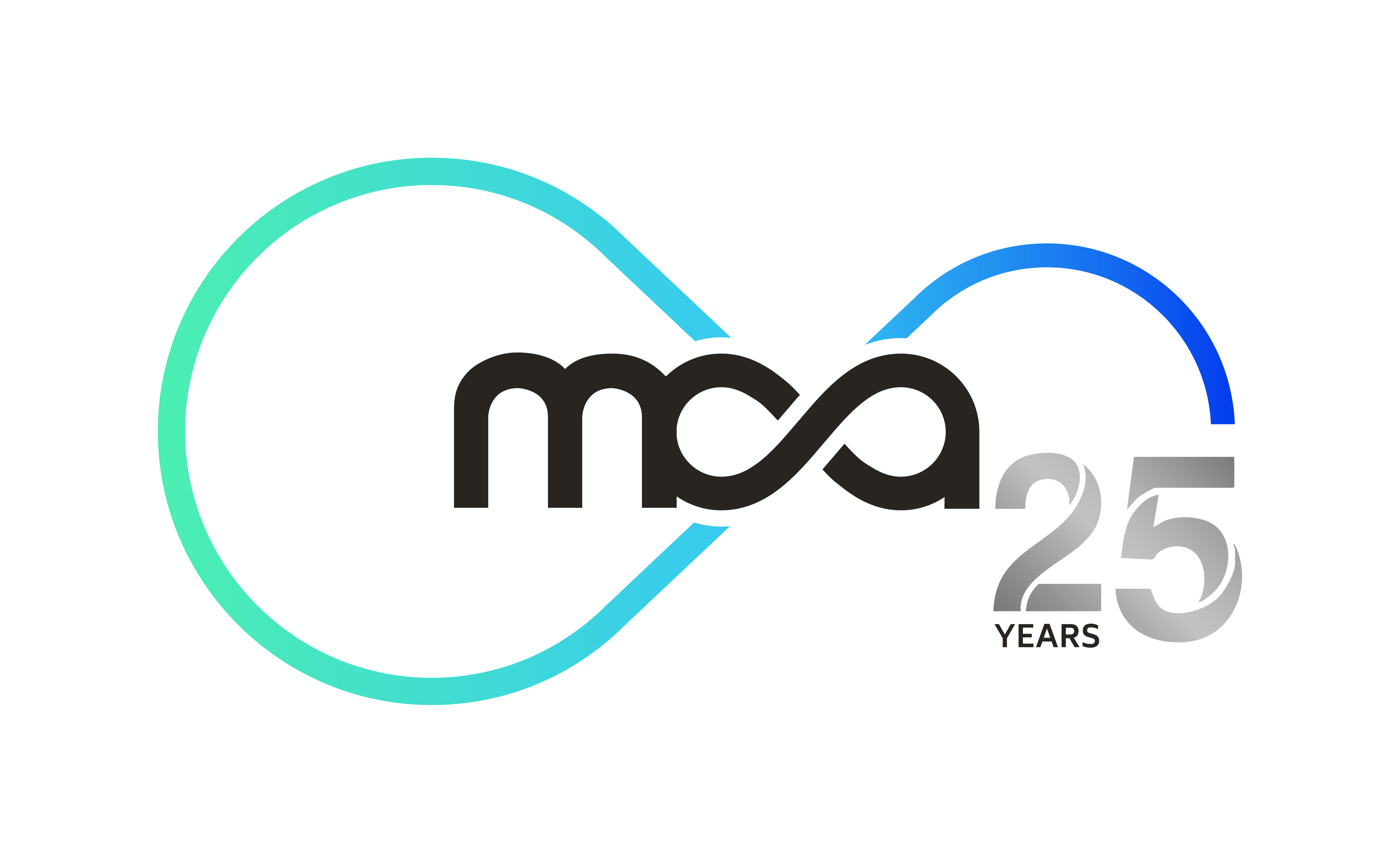The MCA publishes the findings from the Business Perceptions Survey for the period December 2016 – March 2017
The MCA has been carrying out the Business Perception Surveys on a two-yearly interval since 2008. The Business Perception Surveys are aimed at examining the views and opinions of local businesses based on their experience in using products and services related to mobile telephony, fixed broadband, fixed telephony, and other tailor-made packages for business clients. The variables assessed include the level of satisfaction with the products and services being purchased, the sensitivities to price changes, and the overall experience with service level agreements (SLAs).
In terms of questionnaire development, a number of new questions were introduced focusing on the usage and experience of mobile broadband services and the related usage and experience of over-the-top (OTT) services.
The results of these surveys serve as an additional source of information for the MCA’s regulatory decisions, in order to ensure an environment that is conducive to sustainable competition and investment in view of the growing demands of the future. Given that these surveys have been carried out regularly for a number of years, survey results are also indicative of how the needs of end-users have developed over time and how local service providers are dealing with changing demand over the years.
Methodology and Fieldwork
The methodology used in the latest round of business surveys, including the sampling, questionnaire design, fieldwork and weighting processes followed similar approaches to previous surveys. The research methodology involved a mix of Telephone Computer-assisted interviewing (CATI) with businesses employing less than 10 persons and Computer Assisted Personal Interviewing (CAPI) with senior-managers of medium and large businesses.
Businesses were sampled using a stratified random sampling approach that was based on type of business sector (following NACE Rev. 2 Classification) and size of business (micro, small and large). Any refusals / no answer / incomplete surveys would be reallocated to achieve a net sample of at least 400 interview respondents.[1]
[1] More specifically: The 400 completed usable surveys are proportionally distributed across seven (7) predefined industries of business sectors in Malta, namely: (i) primary; (ii) manufacturing; (iii) tourism and hospitality; (iv) personal services; (v) construction and utilities; (vi) wholesale and retail and transport; and (vii) business services.
It is also noted that in order to achieve a representative interviewing and response sample, the methodology applied boosted (over-samples) the quota for medium and large businesses (i.e. businesses with 10 to 49 and 50+ employees respectively). In view of the boosting approach, the MCA shall be publishing survey findings specifically for medium and large businesses.
Overview
Survey findings indicate that the majority of local businesses are largely satisfied with their interaction with electronic communications service providers operating in Malta. With a significant majority of interviewed companies having a subscription to fixed telephony (90%) as well as fixed broadband (86%) along with a significant proportion of businesses offering their employees with a mobile connection (41%), the general perception is that the services purchased are of a good quality and offered at a reasonable price.
Respondents have generally shown a lack of awareness as to their monthly expenditures on the products and services purchased from local service providers. Of those businesses that are aware of their monthly expenses on the services under investigation, the majority feel that their monthly expenditure is reasonable.
Also, of note is that only a small percentage of respondents reported having made a switch between operators in the last two years. For example, only 5% of respondents having a fixed broadband connection reported having changed their operator over the last two years, and only 6% in the case of respondents having a mobile subscription. This somewhat corresponds to the survey finding of a perceived high level of quality of service being offered by local service providers to their business clientele. Notwithstanding this, a segment of respondents still perceive switching to be an inconvenient process and that switching to alternatives would not meet their business requirements.
The MCA will continue to monitor switching and service termination processes and the extent to which they promote good consumer and competition outcomes.
Usage of mobile broadband is also quite widespread practice among local businesses, with 51% of interviewed businesses stating that they make active use of the service, particularly for chat-based and voice-based Over-the-Top services (OTTs). These businesses have also shared a highly positive perception as to the quality of service they get when using mobile broadband.
More survey findings are briefly outlined below. For a more comprehensive picture, a presentation encompassing the main survey findings is available on the MCA website via this link.
Fixed Telephony
Fixed telephony remains a standard fixture for local businesses, with 90% of respondents reporting having such a connection at their premises. The majority of respondents (57%), confirmed having one active fixed telephony subscription. 31% reported having 2 to 4 active connections whilst 11% reported having 5 active connections or more. The typical subscription is on a post-paid contract, with the number of respondents reporting such a connection rising by 22 percentage points since 2014 to 88% of businesses having a fixed line connection in place. An additional 3% of businesses reported having a PABX connection, which on many fronts resembles a post-paid connection but with additional features.
Take-up of fixed telephony in bundled subscriptions keeps rising, with 97% of respondents with a fixed telephony subscription reporting such an arrangement. This figure is up by 3 percentage points since 2012.
As for expenditure, 78% of respondents having a stand-alone fixed telephony subscription reported having spent less than €100 a month on their connection. 53% of businesses knowledgeable of their monthly expenditure on fixed telephony find this service to be reasonably priced.
Mobile Telephony
41% of businesses reporting having a mobile subscription say that they provide their employees with a mobile phone for business purposes. 44% of respondents with a mobile subscription reported having between 2 and 4 connections, which represents an increase of 12 percentage points over 2014. Meanwhile, 39% of respondents with a mobile connection reported having only 1 connection. The remaining 17% of respondents with a mobile subscription purchase more than 5 mobile connections. In this sector post-paid plans are again the most popular type of subscription, with 93% of respondents opting for such a connection, which represents an increase of 4 percentage points from the 2014 survey.
More businesses are also using mobile broadband services. 46% of respondents having a mobile subscription reported making regular use of this service for their business needs. Email is the most used application over mobile broadband, at 92% of respondents reporting usage of mobile broadband, followed by social media presence and website access at 74% and 58% respectively.
Over 90% of respondents having a mobile subscription, reported being satisfied with their service. Meanwhile, 71% of respondents making use of a mobile connection (as a stand-alone), were able to identify their monthly expenditure on the service. Two-thirds of these reported a monthly expenditure of €100 or less.
Fixed Broadband
86% of all businesses reported having a fixed broadband connection at their place of work, an 11 percentage point increase when compared to 2014.
Results garnered from survey questions on fixed broadband show that 88% of respondents with a fixed broadband connection, comprising in their large majority small businesses, purchased standard off-the-shelf plans from their service providers and the remaining 12% are purchasing tailor-made plans. 84% of respondents with a fixed broadband connection reported having a single connection at their premises, whilst 13% reported having two or more connections.
With respect to contract term agreements, 24% of respondents with a fixed broadband connection reported being able to negotiate relevant terms and conditions.
As for the monthly expenditure involved in purchasing a stand-alone fixed broadband connection, only 34% of respondents knew their monthly expenditure on the service. The large majority of these reported spending less than €100 a month on the service. Less than half of these deemed such an expenditure to be reasonable.
Of significance is the satisfaction with the fixed broadband service, with 82% of respondents having such a service reporting a high degree of satisfaction.
Bundles
Businesses continue to show an increased propensity to purchase bundled subscriptions. 59% of businesses reported having a bundled subscription, an increase of 3 percentage points in comparison to the results achieved in the 2014 survey. An element of these respondents also reported having a stand-alone subscription in parallel to their bundled subscriptions.
Generally, 95% of respondents with a bundled subscription reported knowing their monthly expenditure. 65% of such respondents stated that their monthly expenditure was less than €100 a month, whilst 29% reported spending between €100 and €499 a month. Only 8% of respondents felt that their monthly expenditure was not reasonable.
Over-the-top services (OTTs)
Businesses are also making use of OTTs to conduct their operations. 81% of respondents making use of mobile broadband services reported having made use of OTTs, compared to 51% of respondents having a fixed broadband connection. Chat is the most popular form of OTT followed by voice and video OTT services respectively.
Generally, respondents expressed a high level of satisfaction when making use of OTT services. 95% of respondents using OTT over mobile were satisfied or very satisfied with the quality of the service, slightly higher than the satisfaction rate expressed in the usage of OTT over fixed broadband.





